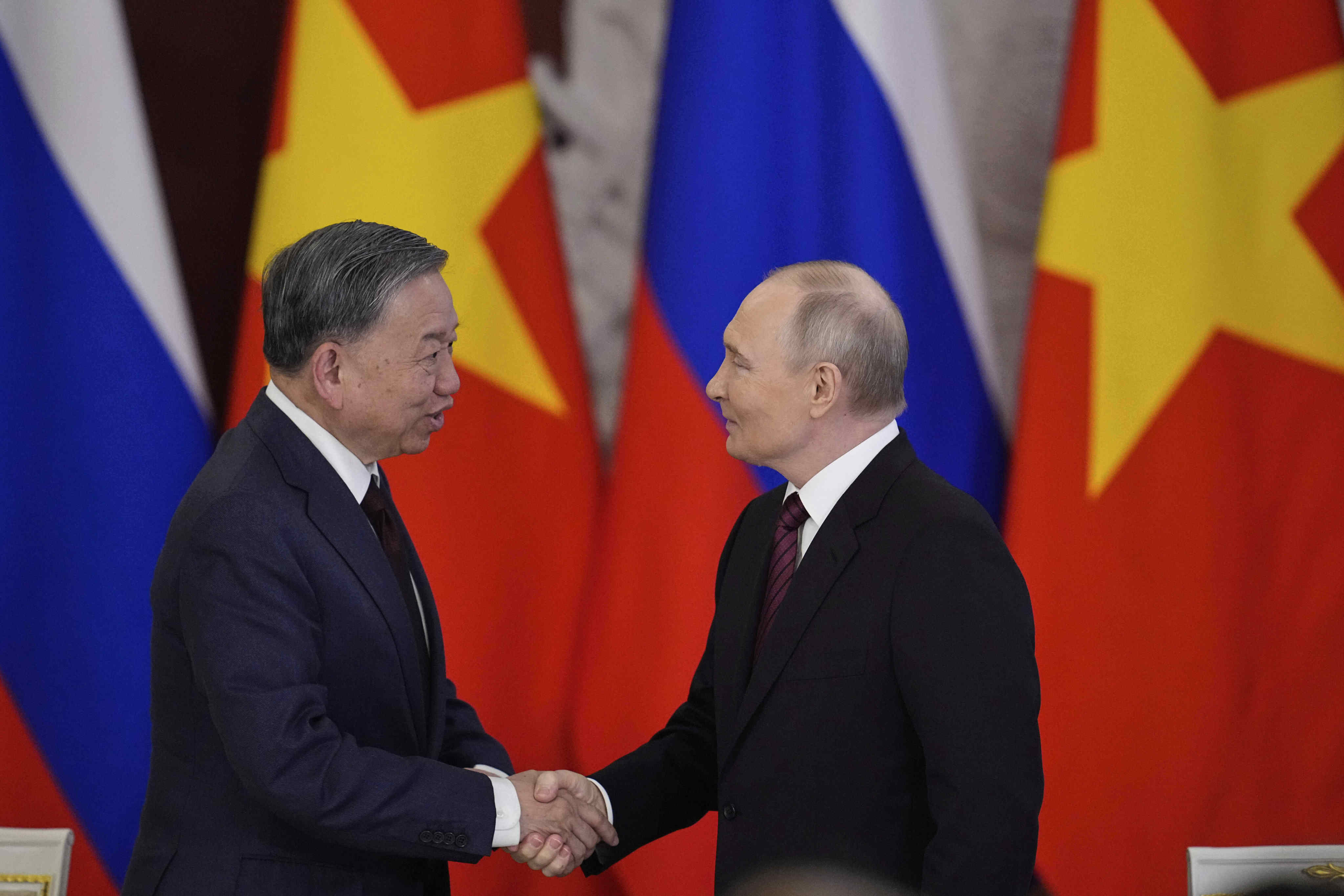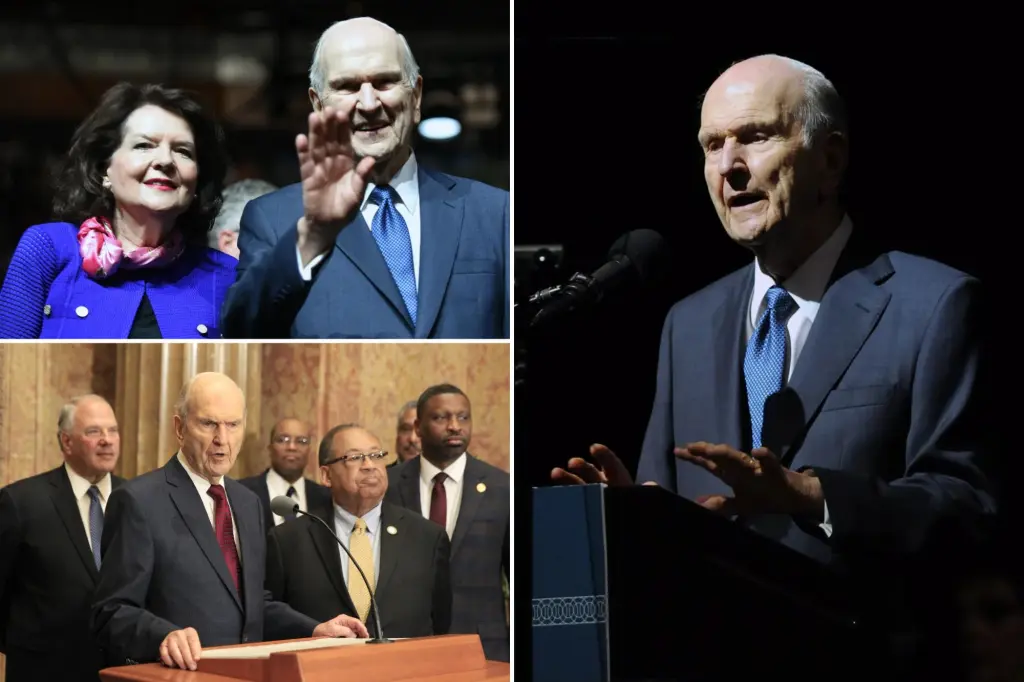By Nikola Mikovic
Copyright scmp

While it has China as its main trade partner and the United States as its primary export destination, Vietnam is strengthening its economic, political and military ties with Russia. The country is carefully balancing its relations with all three powers while trying to get the most economic and strategic benefit from each.
Russian President Vladimir Putin’s 2024 visit to Vietnam seems to have been mutually beneficial. On the one hand, it allowed the Kremlin to demonstrate to a Russian audience that, despite being isolated from the West, Russia still has friends in the international arena. On the other, it helped Hanoi secure several energy deals with Moscow that could boost its growing economy.
One year later, the two nations signed another series of cooperation documents – from a natural gas sales contract and a nuclear cooperation road map to agreements in education, culture, health and defence – that underscore the deepening bilateral ties between Russia and Vietnam. In June, Hanoi received its first shipment of Russian liquefied natural gas, while Moscow is expected to increase the supply and refining of crude oil for Vietnam.
More importantly, reports suggest Vietnam is using profits from joint energy projects with Russia to quietly repay Russian weapons loans. Hanoi is reportedly purchasing Russian arms on credit and repaying the loans using profits from its share in Rusvietpetro, a joint oil venture in Siberia. Additional profits are allegedly transferred to Russia’s energy giant Zarubezhneft, which then sends an equivalent amount from its Vietnam-based venture to Vietnam’s state-owned Oil and Gas Group.
If true, this raises an important question. Why does the United States allow Hanoi and the Kremlin to so easily bypass sanctions on Russia and profit from a mutually beneficial energy-arms trade?
Although the US fought a war against Vietnam in the 1960s and 1970s, it no longer views Hanoi as an adversary. Since the US-Vietnam bilateral trade agreement was finalised in 2001, trade between the two countries has grown dramatically. In 2024, their bilateral trade in goods reached nearly US$150 billion.
Despite being a traditional buyer of Russian weapons, Hanoi is also seeking to expand defence cooperation with Washington. It is, therefore, no surprise that Vietnam plans to purchase helicopters from the US for its police force. Such ambition highlights Vietnam’s balanced approach to its defence partnerships, maintaining ties with both Russia and the US while also strengthening military ties with China.
It is US President Donald Trump’s controversial tariff policy that drew Hanoi and Beijing closer. In July, the militaries of the two nations – despite fighting a brief war in 1979 – held their first joint exercises, while in late August Vietnamese Prime Minister Pham Minh Chinh took part in the China-led Shanghai Cooperation Organisation summit, signalling improved relations between Hanoi and Beijing.
Imposing severe tariffs or sanctions on Vietnam over its energy and defence ties with Russia would almost certainly push Hanoi deeper into Beijing’s and Moscow’s sphere of influence. The US considers Vietnam an important partner in its strategy to challenge China’s regional influence. Thus, Vietnam’s US$4.6 billion trade with Russia – a drop in the ocean compared to its US$205 billion trade with China – is unlikely to be seen as a serious threat to US interests in the region.
Although Vietnam entered into a free-trade agreement with the Russia-led Eurasian Economic Union in 2015, Hanoi and Moscow still have not reached their ambitious goal of US$10 billion in annual trade. Vietnam remains a significant buyer of Russian weapons, though, with Moscow reportedly supplying Hanoi with multifunctional Su-30MK2 and Su-27SK fighter jets, missiles and Varshavyanka-class submarines.
But given that Russia’s weapons exports have fallen off as it prioritises its own military, which is preoccupied with the war in Ukraine, Vietnam seems unwilling to put all its eggs in one basket. That explains why Vietnam is diversifying its weapons imports and seeking to establish defence cooperation with countries such as Israel, South Korea and the Czech Republic.
While Moscow tries to continue deepening its economic and ground military ties with Hanoi, it is also moving to strengthen maritime cooperation. During his visit to Vietnam earlier this month, Putin’s close ally Nikolai Patrushev expressed hope that Moscow and Hanoi would continue discussions to strengthen cooperation in this field, with a focus on naval collaboration, education and training, as well as marine scientific research.
Does his statement signal that Moscow wants to regain access to the Cam Ranh Bay military base, which the Soviet Union used during the Cold War? The 2002 decision to withdraw Russian forces from the facility might be considered a mistake in some quarters, but given the current circumstances – with Russia still bogged down in Ukraine and its Black Sea fleet suffering heavy losses – opening a naval facility in Southeast Asia does not seem like a realistic option.
Even so, that will not hold Russia back from seeking to strengthen ties with Vietnam in other areas. Projections suggest Vietnam will welcome a record number of Russian tourists next year. Meanwhile, Vietnamese pop star Duc Phuc won this year’s edition of Intervision – Eurasia’s answer to Eurovision – which could be an indication that the Kremlin is interested in deepening cultural ties with Hanoi.
But given China’s geographic proximity and its historically deeper cultural ties with Hanoi, it is Beijing – not Moscow – that is the primary concern for US geostrategists in Southeast Asia.



